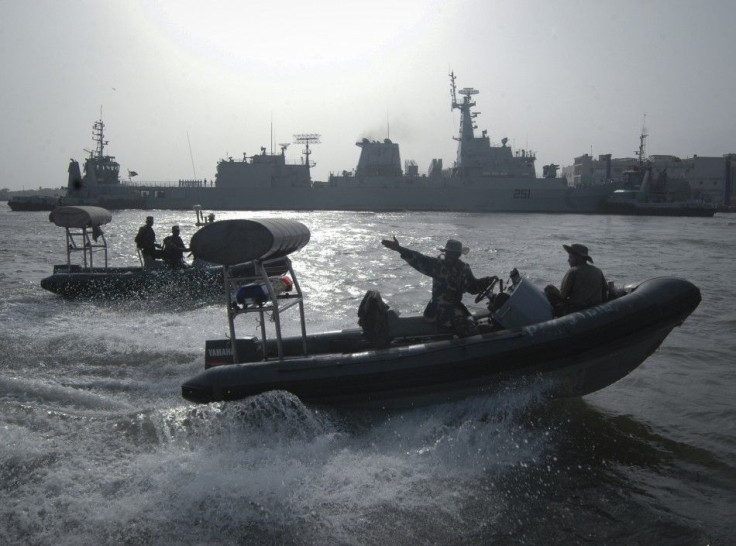Pirates Off West Africa's Coast Threatening African Oil, Focus Of Anti-Piracy Concerns Shifting From Horn Of Africa To West Africa

The global center of piracy appears to have moved from the Horn of Africa to the coast of West Africa, sub-Saharan Africa's largest oil-producing region, as AK-47-wielding marauders increasingly attack ships carrying petroleum and hold sailors hostage for weeks at a time as oil is siphoned away.
Nigeria, Gabon, Ghana and other countries on the Gulf of Guinea produce more than 3 million barrels of oil per day, equaling about one third of Africa’s output, according to data from BP PLC (NYSE: BP). The oil from the region is refined into high-value motor fuels and shipped to refiners in the U.S., Europe and Asia.
There were 40 piracy attacks in West Africa’s Gulf of Guinea in the first nine months of the year and 10 attacks in the water surrounding Somalia, according to the International Maritime Bureau’s Piracy Reporting Centre. Twenty-nine of West Africa’s attacks clustered around the coast of Nigeria in particular, a jump from 21 attacks in the first nine months of 2012.
“Pirates, often heavily armed and violent, are targeting vessels and their crews along the coast, rivers, anchorages, ports and surrounding waters,” the IMB said in an October report. “In many cases, they ransack the vessels and steal the cargo, usually gas oil.”
A Danish security firm, Risk Intelligence, estimated last month that pirates in the Gulf of Guinea have looted 117,000 tons of oil products worth about $100 million since 2010.
Kidnappings are also increasing.
“Initially they were interested in holding the ships, stealing the cargo, taking this ship’s crew possessions and money and leaving,” Roy Paul, a director at Maritime Piracy Humanitarian Response Programme, told Bloomberg. “This year, we’ve seen an increase in taking hostages [for ransom].”
Pirates seized two Americans last month from a U.S.-flagged oil supply ship and held them captive for nearly three weeks before they were released, probably after a ransom was paid. State Department spokesman Jen Psaki told NBC details of the release and names would not be made public due to privacy concerns.
In April 2009, U.S. Navy Seal snipers killed three Somali pirates to rescue American cargo ship captain Richard Phillips, who had offered himself as a hostage to save his crew. His ship was the first American cargo ship to be hijacked in 200 years. The story was turned into a film, "Captain Phillips," released last month and starring Tom Hanks as Phillips.
While piracy is increasing off the coast of West Africa, it is declining off the coast of Somalia, where ship owners and Western governments have fought off pirates with increasingly effective patrols by warships and aircraft and freighters keep armed guards on board. But the use of private security may be less effective in the Gulf of Guinea because the pirates are more violent.
"In Somalia, piracy was really out-of-work fisherman looking to improve their lives, but piracy in West Africa is really part of a bigger criminal system, networks embedded in the nations," Alistair Galloway, owner of private security provider Endeavour Maritime, told NBC. "The networks are in place and it’s been easy for them to attack."
© Copyright IBTimes 2024. All rights reserved.






















